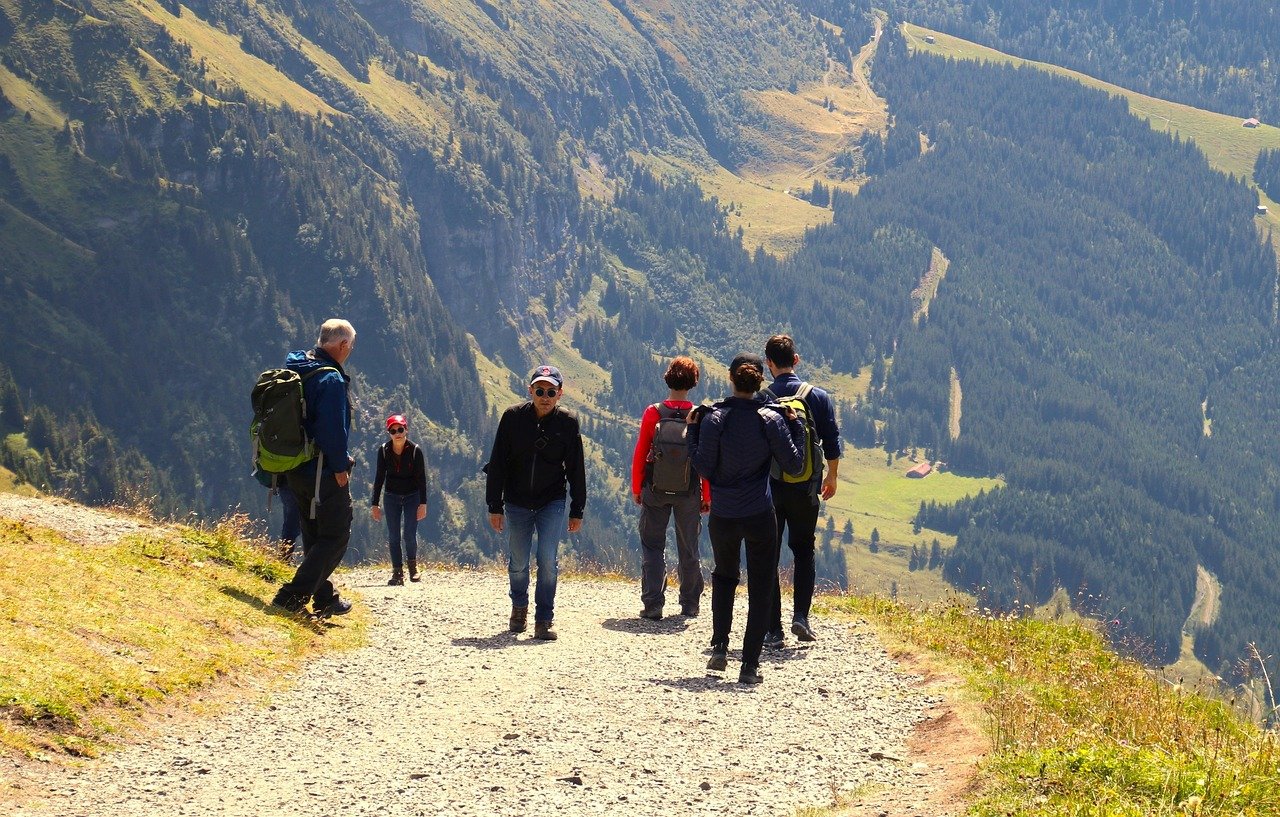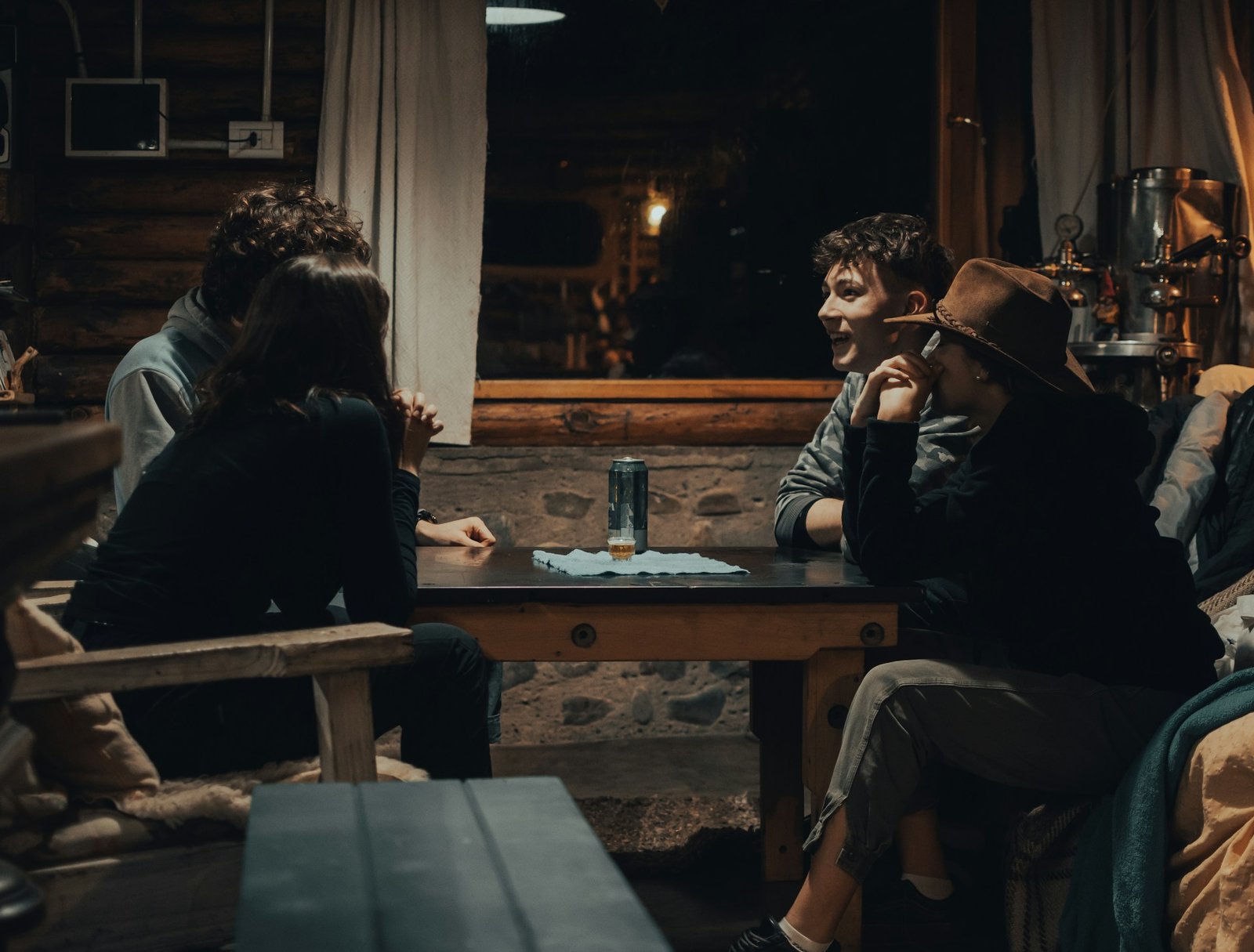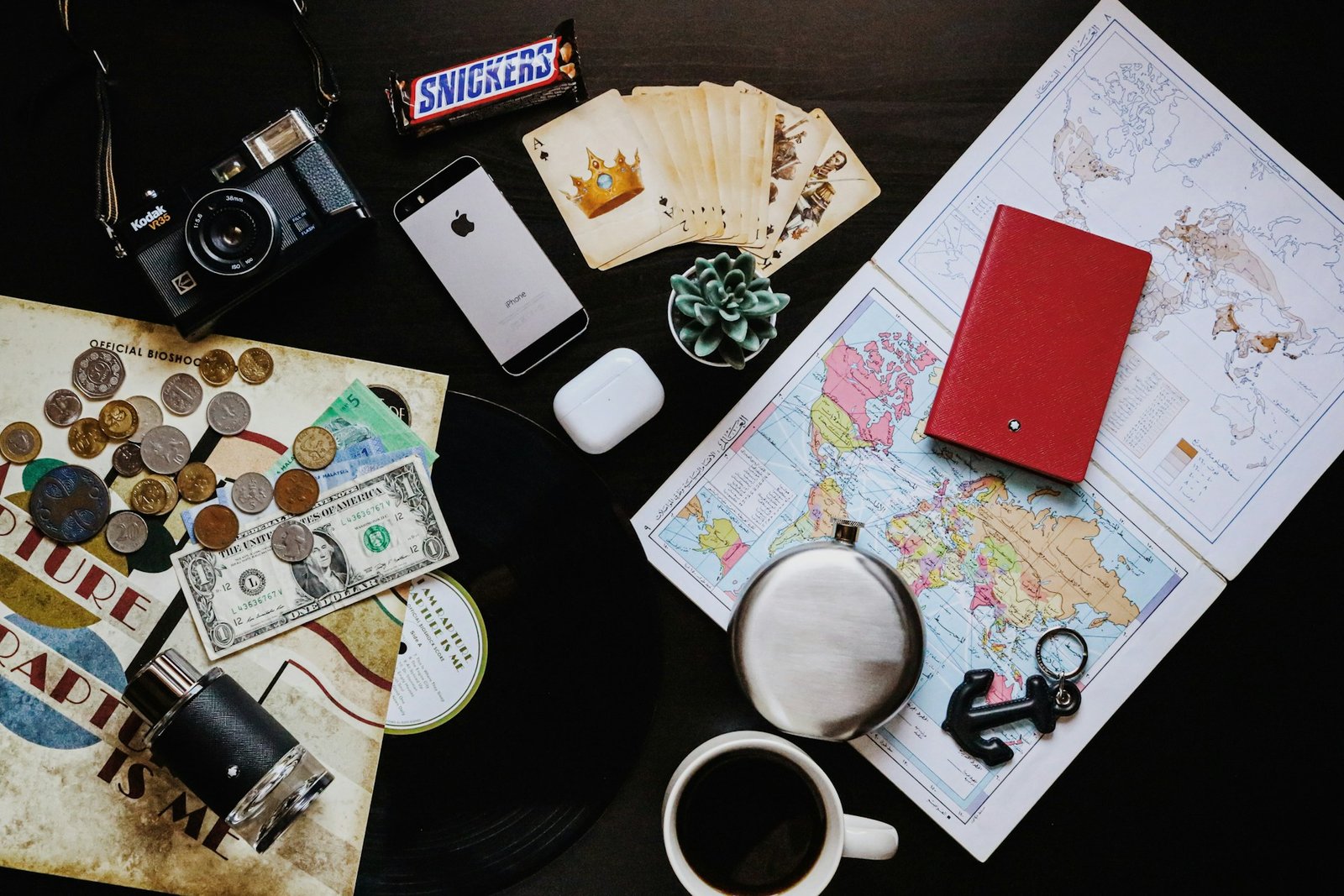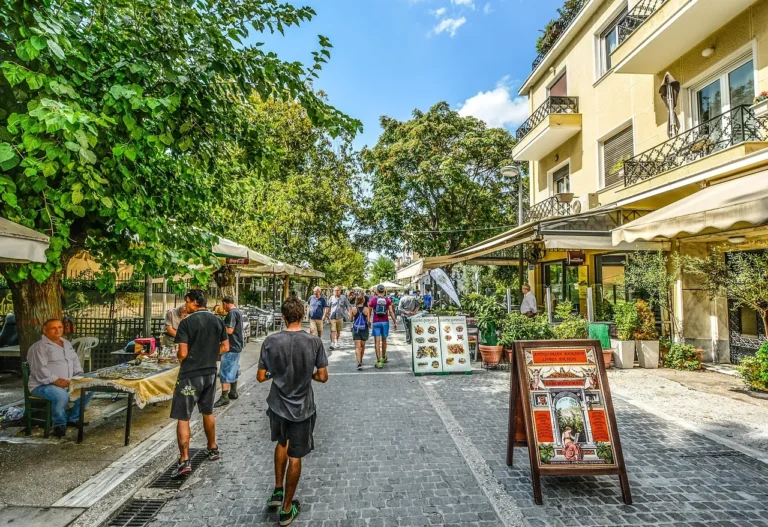Let me start by sharing my honest truth: the closest I’ve ever come to ending a decade-long friendship wasn’t over borrowed money, stolen boyfriends, or even wedding drama. It was over a seemingly innocent question posed at 2 AM in a cramped Rome hostel: “Why did you book us the 6 AM train to Florence without asking anyone?”
That moment taught me something crucial about group travel—it’s not just about picking destinations and splitting costs. It’s about navigating personalities, expectations, and the peculiar way stress manifests when you’re sleep-deprived and someone’s snoring in the bunk above you.
If you’ve ever wondered how to travel with friends without wanting to strangle them by day three, you’re in the right place. After orchestrating more group trips than I care to count (and surviving most of them with friendships intact), I’ve learned that successful group travel isn’t luck—it’s strategy.
The Psychology Behind Group Travel Drama
Let’s start with why friend trips go sideways in the first place. When you travel with friends, you’re essentially putting your relationships in a pressure cooker. Everyone’s out of their comfort zone, budgets are involved, and suddenly Sarah’s inability to make decisions becomes everyone’s problem.
The thing is, we rarely travel the same way we live our daily lives. At home, if Mark always runs late, it’s annoying but manageable. On vacation, when his chronic tardiness means missing the last boat to that island everyone’s been excited about? That’s friendship-ending material right there.

Pre-Trip Planning: Setting the Foundation
Choose Your Travel Companions Wisely
This sounds obvious, but hear me out. Your favorite drinking buddy might not be your ideal travel companion. I learned this the hard way during a Barcelona trip where my usually fun-loving friend turned into a budget-obsessed accountant, questioning every tapas order like we were filing taxes.
Consider travel compatibility, not just friendship compatibility. Ask yourself:
- Do they handle stress well?
- Are they flexible when plans change?
- Can they communicate their needs clearly?
- Do they respect other people’s money and time?
The Sacred Group Chat: Communication is Everything
Start a group chat dedicated to trip planning at least 2-3 months before departure. Yes, another group chat—I know, I know. But this becomes your central command center for everything trip-related.
Set ground rules early:
- All major decisions get discussed here
- No side conversations about trip changes
- Everyone gets 48 hours to respond to important questions
- Use polls for quick decisions

Money Talks: The Budget Conversation
Here’s where most friendships hit their first speed bump. One person’s “budget-friendly” is another person’s “are we staying in a cardboard box?” I’ve seen grown adults have meltdowns over the difference between a $80/night and $120/night hotel.
Create a shared spreadsheet (Google Sheets works perfectly) with these categories:
- Accommodation costs per person
- Transportation expenses
- Daily food/activity budgets
- Emergency fund contributions
- Who’s paying for what upfront
Pro tip: Build in a 20% buffer for unexpected costs. That cute riverside restaurant nobody researched? The spontaneous wine tasting? These moments make trips memorable, but they shouldn’t break anyone’s bank.
Logistics That Actually Matter
Accommodation Strategy
Forget everything you think you know about booking accommodation for groups. The “let’s all stay together” approach works until someone’s a morning person and someone else treats 3 AM like happy hour.
Consider these options:
- Single large rental: Great for bonding, terrible for personal space
- Adjacent hotel rooms: Best compromise of togetherness and sanity
- Nearby separate accommodations: Perfect for larger groups or mixed budgets
I personally vote for adjacent hotel rooms or a large Airbnb with enough bathrooms that nobody’s queuing up with their toiletry bag at 7 AM.
Transportation: The Make-or-Break Decision
Nothing tests friendships like being crammed in a rental car for 8 hours with someone who insists on controlling the music. Plan your transportation method based on group dynamics:
- Flying: Expensive but efficient for longer distances
- Road trips: Fun but requires a solid driving rotation plan
- Public transport: Budget-friendly but needs coordination skills
Golden rule: Whoever’s driving gets music control, but everyone gets veto power on truly offensive choices. No one should be subjected to death metal at 8 AM, no matter whose turn it is.
Managing Group Dynamics on the Road
The Art of Compromise
You know what nobody tells you about group travel? Someone will always want to see every single museum while someone else just wants to sit at cafés and people-watch. Both approaches are valid, but they require negotiation.
Try the “split and merge” strategy:
- Morning activities can be separate based on interests
- Meet up for lunch or afternoon activities
- Evenings back together for dinner/drinks
This way, museum-lovers get their culture fix, café-sitters get their relaxation, and nobody feels dragged around doing things they hate.
Dealing with the Inevitable Conflicts
Here’s the thing about travel drama—it’s rarely about what it appears to be about. That argument about which restaurant to choose? It’s probably actually about feeling unheard or stressed about money.
When conflicts arise (and they will):
- Address it immediately, not three days later when you’re even more annoyed
- Focus on the specific issue, not personality traits
- Remember you’re all out of your comfort zones
- Sometimes agreeing to disagree is perfectly fine

The Power of Flexibility
I once traveled with a group that had every minute planned down to bathroom breaks. By day two, we were all secretly plotting escapes. The best group trips have structure but leave room for spontaneity.
Build in buffer time:
- Free mornings or afternoons
- Unscheduled meal slots for discoveries
- Backup indoor activities for bad weather
- Time to just exist without an agenda
Food and Dining: A Surprisingly Big Deal
Never underestimate how much food preferences can impact group harmony. I’ve witnessed a near friendship apocalypse over whether to eat at McDonald’s or try authentic local cuisine (for the record, both choices are fine, but the argument wasn’t).
Food diplomacy strategies:
- Mix familiar and adventurous dining choices
- Research restaurants that cater to different dietary needs
- Don’t force the vegetarian to go to the steakhouse
- Sometimes splitting up for meals is perfectly acceptable
Consider meal planning:
- Breakfast: Usually separate (different wake-up times)
- Lunch: Mix of planned and spontaneous
- Dinner: More group meals, but flexibility is key
Technology and Social Media Boundaries
This might sound minor, but social media can become a surprising source of tension. Some people want to document everything, others prefer to stay present. Some share constantly, others are private.
Establish photo and posting guidelines:
- Always ask before posting photos of others
- Respect when someone doesn’t want to be in pictures
- Don’t spend entire meals staring at phones
- Designate a group photographer to reduce everyone snapping the same sunset
Crisis Management: When Things Go Wrong
Because they will go wrong. Flights get delayed, people get sick, weather happens, and sometimes that highly-rated restaurant turns out to serve questionable seafood.
Create a crisis management plan:
- Designate one person as the primary problem-solver (rotate daily)
- Keep important documents easily accessible to all
- Have a group emergency fund
- Know how to contact local emergency services
- Don’t panic—most travel problems have solutions
I remember a trip to Thailand where our entire group got food poisoning on the same day. Instead of letting it ruin everything, we turned it into a spa day, ordered room service, and watched terrible movies together. Sometimes the best travel memories come from the worst travel moments.
The Return Home: Preserving Friendships Post-Trip
The trip doesn’t end when you get home. How you handle the aftermath can determine whether you’ll travel together again or avoid each other at parties.
Post-trip etiquette:
- Settle shared expenses within a week
- Share photos promptly
- Don’t immediately post complaints on social media
- Give everyone time to process before planning the next adventure
- Address any unresolved issues privately, not in the group chat
Essential Travel Tools and Resources
Here are my tried-and-tested recommendations for smooth group travel:
Planning and Organization Tools
- Splitwise – Essential for tracking shared expenses and settling up post-trip
- Google Sheets – Perfect for collaborative itinerary planning and budget tracking
- TripIt – Organizes all travel confirmations in one place for easy group access
- WhatsApp – Reliable international group messaging without roaming charges
- Doodle – Simplifies scheduling and decision-making with easy polls
Accommodation Platforms
- Airbnb – Great for larger groups needing multiple bedrooms and common spaces
- Booking.com – Excellent filter options for group-friendly hotels with adjoining rooms
- VRBO – Specializes in whole-home rentals perfect for group stays
- Hostelworld – Budget-friendly option with private group rooms available
Transportation Solutions
- Skyscanner – Compare flight prices and coordinate group bookings
- Rome2Rio – Comprehensive transportation options between destinations
- BlaBlaCar – Ridesharing across Europe for budget-conscious groups
- Uber – Reliable group transportation in most major cities
Group Activity Planning
- GetYourGuide – Book group tours and activities with easy cancellation policies
- Viator – Wide selection of group experiences and skip-the-line tickets
- Eventbrite – Find local events and activities happening during your visit
- Meetup – Connect with local groups and unique experiences
Essential Travel Apps
- Google Translate – Offline translation capabilities for group communication
- XE Currency – Real-time currency conversion for budget discussions
- Maps.me – Offline maps that work when group members get separated
Travel Insurance and Safety
- World Nomads – Comprehensive group travel insurance with activity coverage
- SafetyWing – Affordable travel insurance ideal for longer group trips

The Bottom Line
Traveling with friends doesn’t have to end in drama, passive-aggressive social media posts, or permanent friendship casualties. The secret isn’t finding perfect travel companions—it’s planning thoughtfully, communicating openly, and remembering why you wanted to explore the world with these people in the first place.
Some of my most treasured memories happened during group trips that were, objectively, disasters. The night we got hopelessly lost in Venice and ended up having the best meal of our lives at a tiny restaurant we’d never have found otherwise. The rainy day in Paris when we abandoned all our museum plans and spent hours in a bookshop café, just talking.
The goal isn’t a perfect trip—it’s a memorable one that strengthens rather than strains your friendships. And honestly? With the right preparation and mindset, you might just discover that your friends are even more amazing travel companions than you imagined.
Frequently Asked Questions
How do you split costs when traveling with friends? Answer: Use apps like Splitwise or create a shared Google Sheet to track all expenses in real-time. Decide upfront who pays for what, and settle all shared costs within a week of returning home to avoid awkwardness.
What’s the best group size for friend travel? Answer: 4-6 people is typically ideal. Small enough for efficient decision-making and restaurant reservations, large enough to split costs effectively and handle it if someone can’t make it last-minute.
How do you handle different budgets when traveling with friends? Answer: Have an honest money conversation early. Create tiered options for accommodations and activities, and remember that sometimes splitting up for expensive activities is perfectly fine—not everyone needs to do everything together.
What should you do if friends argue during the trip? Answer: Address conflicts immediately rather than letting them fester. Focus on the specific issue, not personality traits, and remember everyone’s out of their comfort zone. Sometimes taking a few hours apart helps reset the dynamic.
How far in advance should you plan a group trip? Answer: Start planning 2-3 months ahead for domestic trips, 4-6 months for international travel. This allows time for proper research, booking better rates, and coordinating everyone’s schedules without pressure.
Should you book separate or shared accommodations? Answer: Adjacent hotel rooms or a large rental with enough bathrooms and common space works best. Shared accommodations are great for bonding, but everyone needs some personal space and quiet time.
How do you deal with different travel styles in a group? Answer: Use the “split and merge” strategy—separate for activities that match individual interests, then reunite for meals or evening activities. Not everyone needs to see every museum or visit every bar.
What’s the biggest mistake people make when traveling with friends? Answer: Over-planning every minute or, conversely, planning nothing at all. The sweet spot is having a loose structure with built-in flexibility for spontaneous discoveries and individual preferences.
How do you choose destinations that work for everyone? Answer: Create a collaborative list of potential destinations, then narrow down based on budget, interests, and travel time. Consider places that offer variety—cities with both cultural attractions and nightlife, for example.
What should you do if someone is consistently difficult during the trip? Answer: Have a private, honest conversation about specific behaviors rather than attacking their character. If issues persist, sometimes completing the trip and having a post-travel discussion is the most diplomatic approach.






